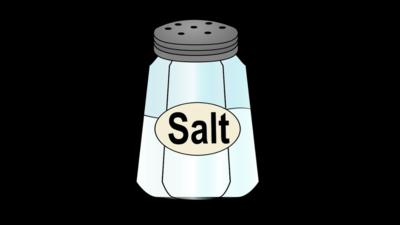Trending
This story is from June 29, 2022
Goa: ‘Limit use of sugar, salt and oil in food for good health’
Food and drugs administration (FDA) designated officer Richard Noronha advised against consuming salt, sugar and oil in excess.

Representative image
PANAJI: Food and drugs administration (FDA) designated officer Richard Noronha advised against consuming salt, sugar and oil in excess.
“Lifestyle disorders today are mainly attributed to our lack of control of salt, sugar and oil intake,” he said while addressing students and teachers at a State Consumer Day programme in Margao.
The country has a very large burden of non-consumable diseases, where diabetes and hypertension have now become household names.
 The Eat Right India movement, an initiative of the government of India and food Safety and Standards Authority of India (FSSAI), aims to ensure healthy and sustainable food and creating awareness on how to reduce salt, sugar and oil, he said.
The Eat Right India movement, an initiative of the government of India and food Safety and Standards Authority of India (FSSAI), aims to ensure healthy and sustainable food and creating awareness on how to reduce salt, sugar and oil, he said.
Disease doesn’t only burden the individual and reduce the years of one’s productive life, but is also a burden on the entire economy. “A large amount of manpower and funds are required to treat this population,” he said.
“We are not saying any particular food is bad, rather it is the way we consume food that harms us,” he added.
Noronha also highlighted the importance of a balanced diet which includes fruits and vegetables consumed liberally, cereals and pulses consumed in adequate quantity, milk and milk products, meat, fish and poultry. Food and drink high in fat or sugar must be consumed sparingly, he said.
In addition to this, one needs to drink the right amount of water to flush out toxins.
He advocated the need to limit fast food consumption and go back to traditional local foods which our bodies are biologically more competent to digest.
Noronha explained to the students how excess sugar intake stresses out the pancreas and develops insulin resistance, and asked the students to read up on the glycaemic index.
“White rice has a higher glyaemic index compared to brown rice. Brown rice has fibre so one’s sugar will not shoot up as fast as if one consumes white rice,” he said.
“Lifestyle disorders today are mainly attributed to our lack of control of salt, sugar and oil intake,” he said while addressing students and teachers at a State Consumer Day programme in Margao.
The country has a very large burden of non-consumable diseases, where diabetes and hypertension have now become household names.

“If you investigate why we are falling prey to these diseases, it shows that somewhere we have let go of these three aspects. We are not controlling the sugar, salt and oil we consume,” he said.
Disease doesn’t only burden the individual and reduce the years of one’s productive life, but is also a burden on the entire economy. “A large amount of manpower and funds are required to treat this population,” he said.
“We are not saying any particular food is bad, rather it is the way we consume food that harms us,” he added.
Noronha also highlighted the importance of a balanced diet which includes fruits and vegetables consumed liberally, cereals and pulses consumed in adequate quantity, milk and milk products, meat, fish and poultry. Food and drink high in fat or sugar must be consumed sparingly, he said.
In addition to this, one needs to drink the right amount of water to flush out toxins.
He advocated the need to limit fast food consumption and go back to traditional local foods which our bodies are biologically more competent to digest.
Noronha explained to the students how excess sugar intake stresses out the pancreas and develops insulin resistance, and asked the students to read up on the glycaemic index.
“White rice has a higher glyaemic index compared to brown rice. Brown rice has fibre so one’s sugar will not shoot up as fast as if one consumes white rice,” he said.
End of Article
FOLLOW US ON SOCIAL MEDIA










